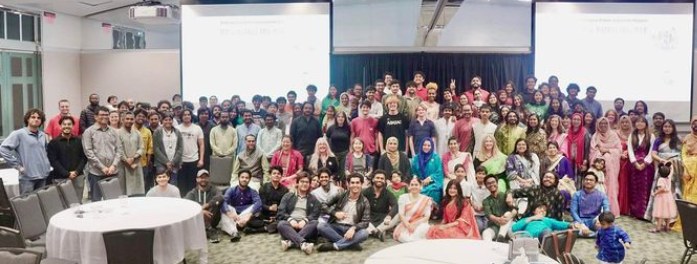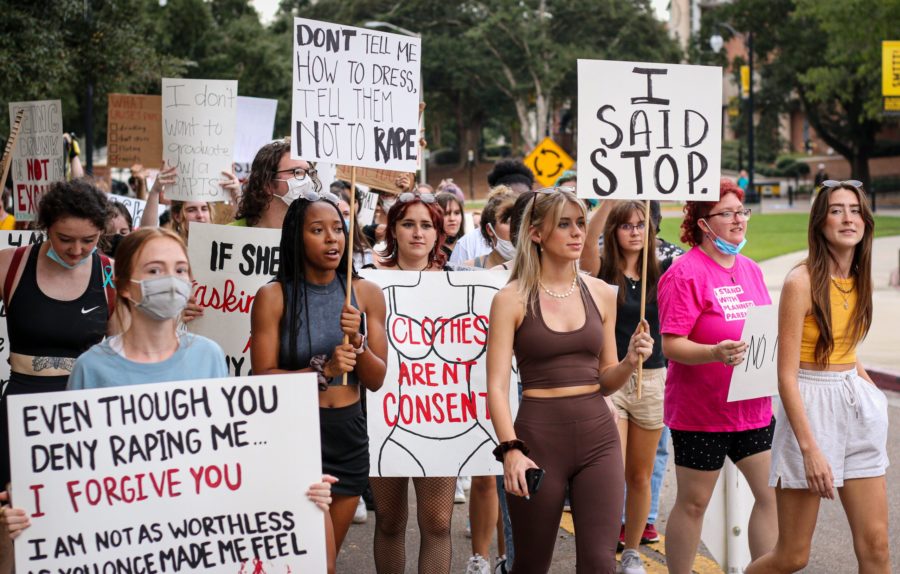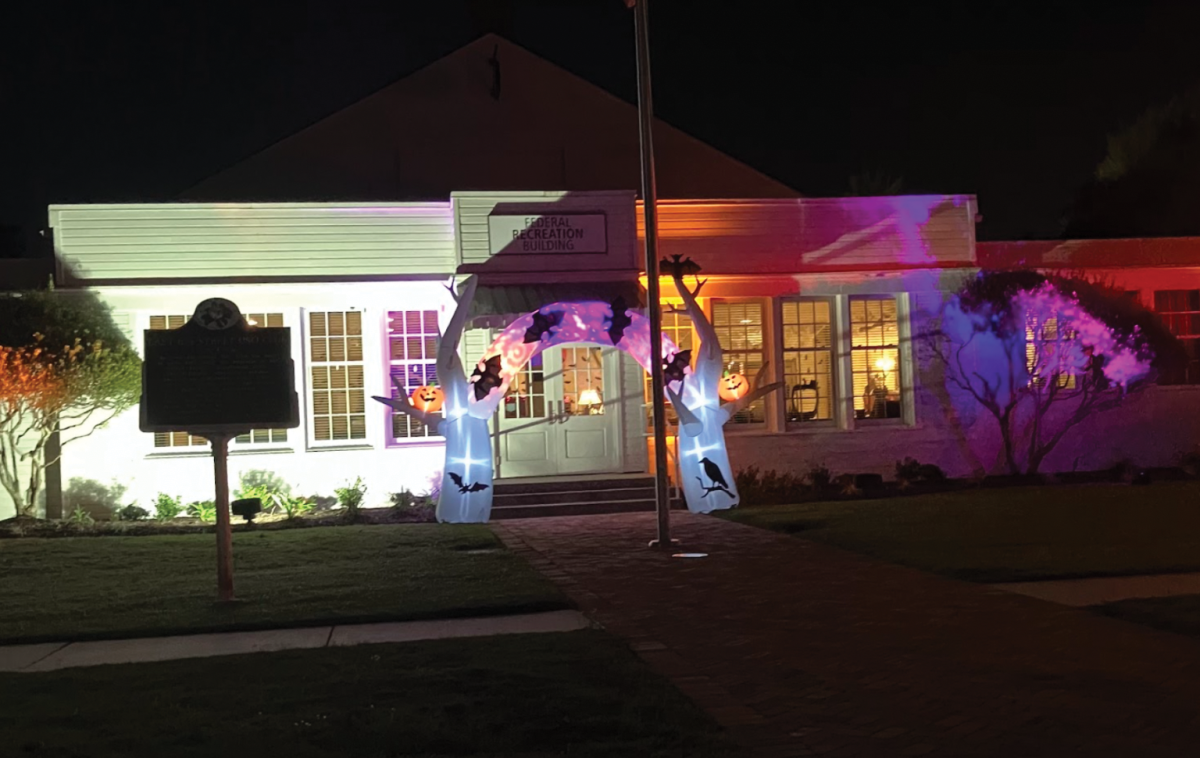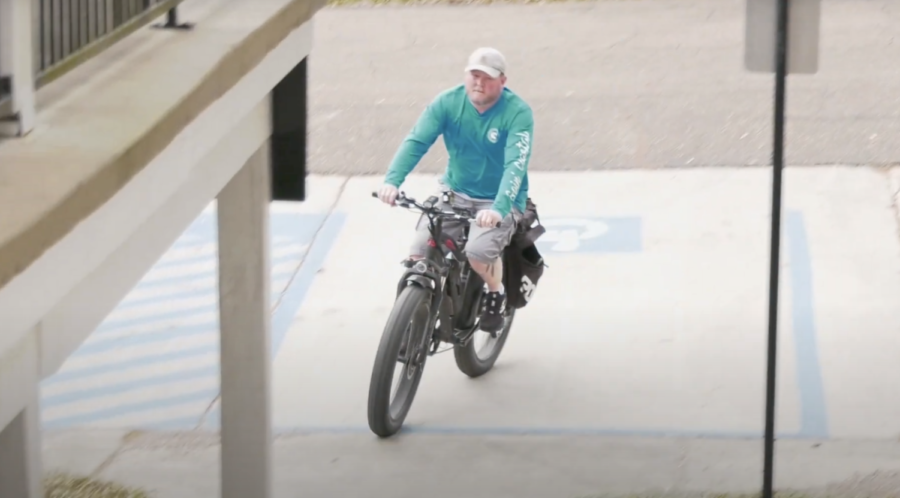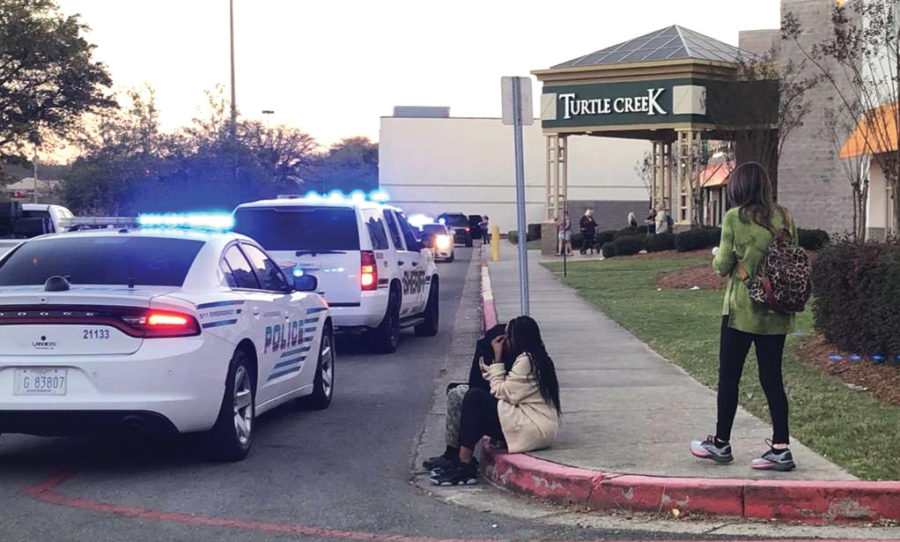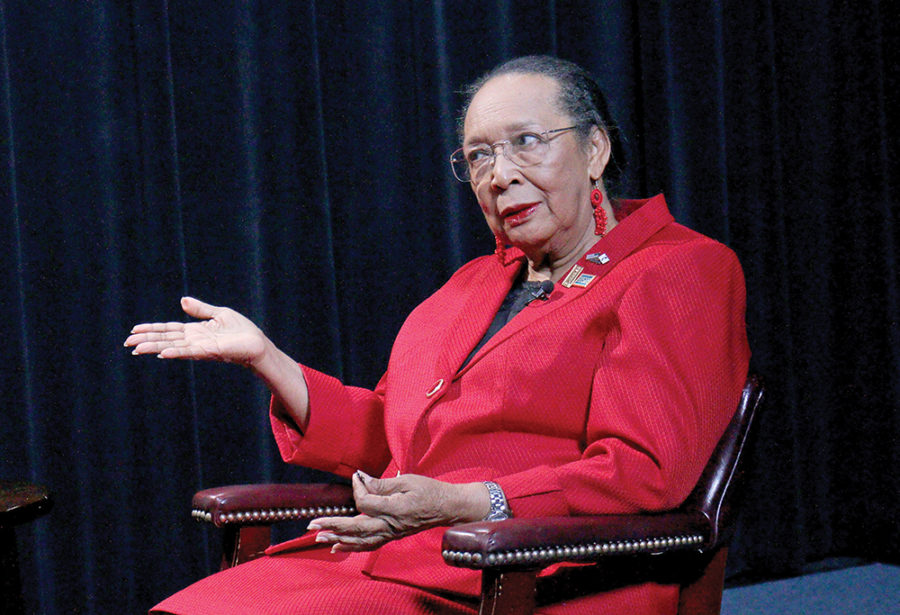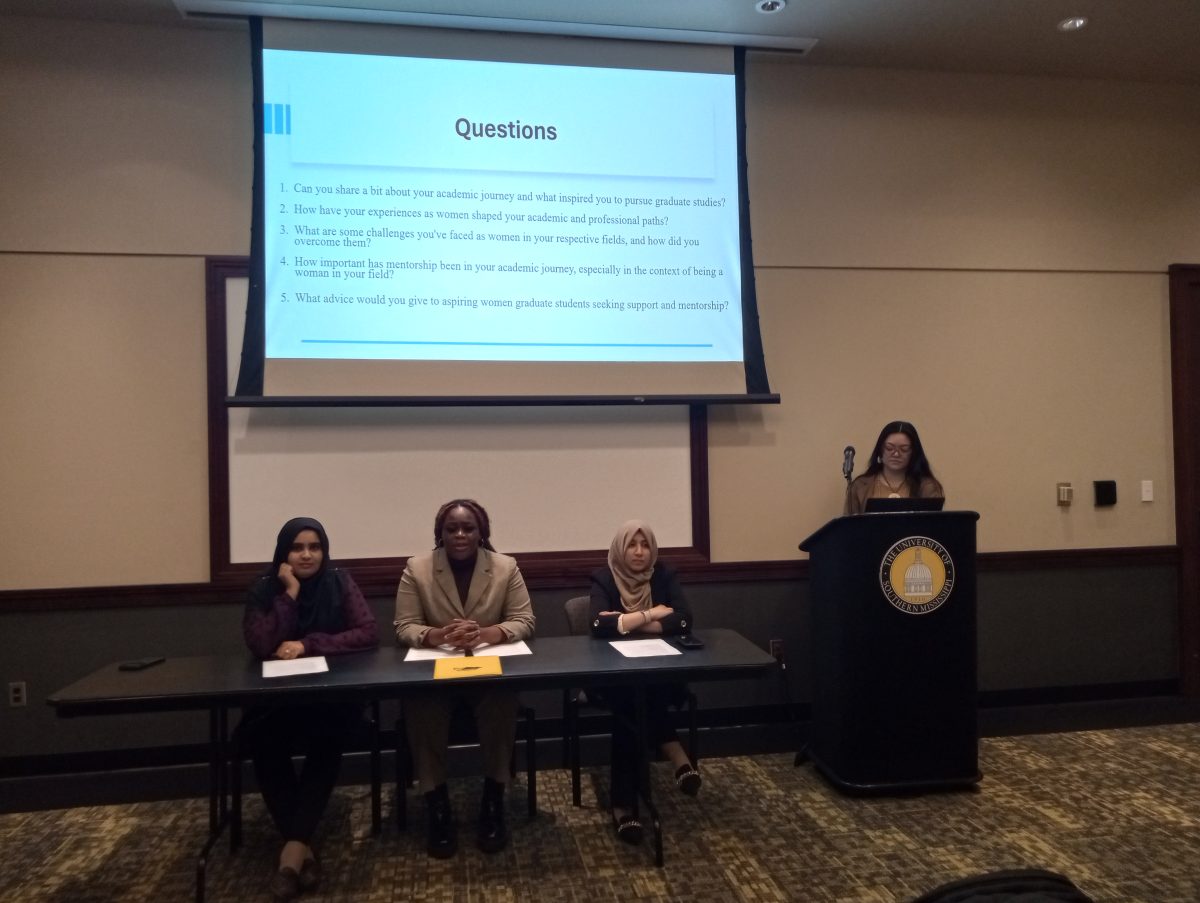Warning: Content may be sensitive for some readers.
Dozens of students protested in front of the University of Southern Mississippi’s Hattiesburg campus on Oct. 1 to raise awareness of sexual assault.
The protest stemmed from a viral video shared by a Southern Miss student, Adia Reed, who said she was sexually assaulted by a student in the fall semester of 2017. The video has been shared over 500 times and led students to form the protest, which senior English major Rebecca Fish organized.
“It [the video] sparked a conversation that a lot of people who are on this campus had that same experience and have not felt heard from the administration. And so this is to open the conversation,” Fish said.
Reed was only one of the speakers at the event, all of whom shared their stories or close friends’ stories of sexual assault over the years. She said she created the video after she learned that her assaulter had re-enrolled at the school after a temporary two year suspension.
“This is a much bigger issue than just this,” Reed said. “It’s a slap in the face to everyone that is here right now.”
Bella Brocato, the President of the Sexual Assault Prevention Ambassadors, demanded a “no tolerance” policy of sexual assault from the school.
“This should not be a bottom-up effort and it is,” Brocato said. “We’re tired and we’re done.”
Fish said that students have addressed their concerns with administration members, but are tired of their inaction.
Brocato said their meeting with administration outlined change to come. Brocato said that the university agreed to send out a statement on the issue, pledged to increase educational programming and have agreed in terms to implement a zero-tolerance policy of sexual assault on campus, meaning that a student found guilty of sexual assault will not be allowed on campus.
As of Oct. 6, the university has yet to make a statement.
Interim Title IX Coordinator Cristin Reynolds said that their office was aware of the protest prior to the event and shared information about their education resources for students, faculty and staff.
“As an office, we’re here as a supportive measure for our students and our faculty and staff, so we definitely want to make sure that information’s out so that people can report [sexual assault], so we are sharing that information [about the protest] if things are happening,” Reynolds said. “We are an entity of the institution. We house our sexual harassment policies, so that’s really important for us to educate on how people can report to the institution if things are happening, so that [we can then] address to stop, prevent and remedy this kind of behavior.”
According to a 2020 report by the Association of American Universities, 13% of over 100,000 students reported having experienced non consensual contact during their time at school.
“The effects of it are lifelong. They do not stop after you graduate college, they do not stop after ten years. They forever change your life and people who commit those crimes and cause those effects need to be held responsible to the highest extent and to the extent of which those effects will last on you,” Brocato said at the protest.
Freshman theater major Seth Rodivich shared a story at the protest to highlight the lasting effects sexual assault can have on people. Rodivich learned that his girlfriend had been sexually assaulted, and sees how it still affects her.

“What was most gravitating about it was about how she still feels about herself now and how she feels dirty or tarnished,” said Rodivich. “Ever since then, this awareness of sexual assault not only in the school or in the state, but the whole nation, has been one of my passions.”
Reynolds emphasized that her office both shares information about sexual misconduct and assault on campus and ways for survivors to report on-campus incidents. Southern Miss’s Title IX office is located inside Cook Library Room 129. You can also visit www.usm.edu/title-ix to file a report online or call 601-266-6804 to talk to an office member directly.
The Student Printz Executive Editor Mary Murphy also contributed to this report.





